Each of our blog reviewers selects one blog that has particularly impacted them this year and explains why
Robin Conway
Our visions for confident and articulate students
@MissTBegum
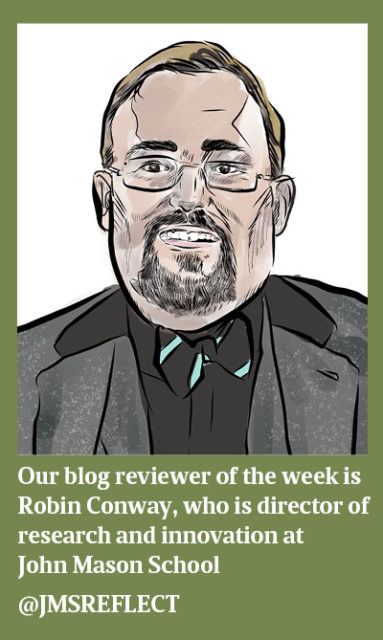 Choosing one blog for the year is never easy, and looking through past nominations has reminded me of some fantastic and inspirational pieces from this year. But for one blog that has had most impact on my own practice (and that of colleagues) I nominate this piece by Thahmina Begum.
Choosing one blog for the year is never easy, and looking through past nominations has reminded me of some fantastic and inspirational pieces from this year. But for one blog that has had most impact on my own practice (and that of colleagues) I nominate this piece by Thahmina Begum.
Her clear moral drive, the practical values encapsulated in SHAPE and SLANT and the outline of positive “habits of discussion” have all resonated strongly with our team and I have seen their impact in lessons. The idea of “high-frequency errors” is powerful, well-explained and worth reflection by all teachers.
Penny Rabiger
Becoming an antiracist ̶ the podcast
@Muna_Abdi_Phd
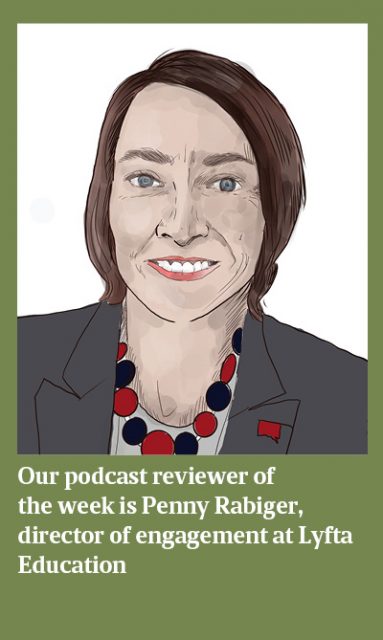 This podcast series is hosted by the inimitable Dr Muna Abdi, who invites a range of guests to explore a number of topics concerning racism and anti-racism in education. The series aims to support teachers on their journey to becoming an antiracist. It offers a space to listen, reflect, engage and learn.
This podcast series is hosted by the inimitable Dr Muna Abdi, who invites a range of guests to explore a number of topics concerning racism and anti-racism in education. The series aims to support teachers on their journey to becoming an antiracist. It offers a space to listen, reflect, engage and learn.
Dr Abdi’s insights and methodical unpacking of the issues make it impossible not to lean in and learn, no matter whether you’re well versed or have just a basic grasp of the subject matter. A must-listen for anyone working in the education sector.
Naureen Khalid
@bennewmark
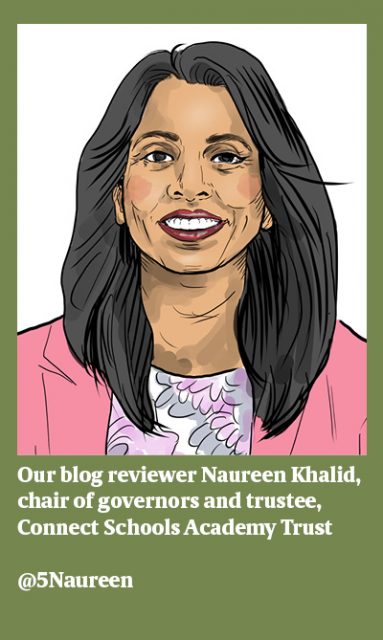 Of all the blogs I’ve reviewed this year, the one that moved me most was this by Ben Newmark. He writes eloquently about parents who tell him of the loss they suffered when they were tricked into acting against their instincts and told not to love their child. Remarkably philosophical, given his own experience, Newmark concludes that it is because we lack the language to talk about disability that we let awful things happen.
Of all the blogs I’ve reviewed this year, the one that moved me most was this by Ben Newmark. He writes eloquently about parents who tell him of the loss they suffered when they were tricked into acting against their instincts and told not to love their child. Remarkably philosophical, given his own experience, Newmark concludes that it is because we lack the language to talk about disability that we let awful things happen.
It’s no understatement to say this blog should be read by all educators. It is surely our duty to help society get to a place where parents won’t be told to “move on and have another” child.
Sonia Thompson
@jpembroke
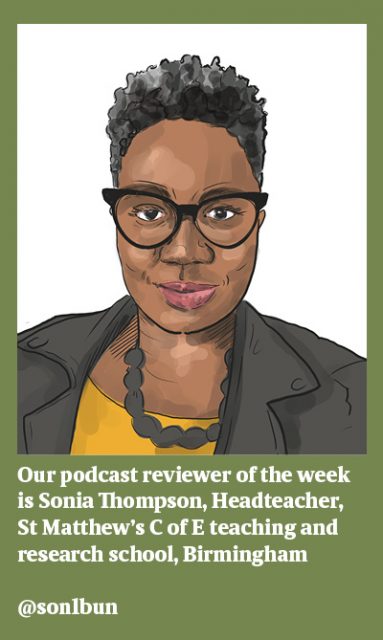 It’s hard to single out a single post from James Pembroke’s blog, so I’m picking the whole thing as my blog of the year. His tenacity on his mission to wake our profession up to the benefits of data downsizing is simply refreshing.
It’s hard to single out a single post from James Pembroke’s blog, so I’m picking the whole thing as my blog of the year. His tenacity on his mission to wake our profession up to the benefits of data downsizing is simply refreshing.
I’ve had lightbulb moments reading his posts. In fact, they have given me the confidence to preen and prune my own overgrown and unwieldy assessment system. The idea that we need to re-imagine the audience and purpose for our data is profound. We don’t need to be bogged down in the quagmire of spreadsheets. Instead, it’s about being assessment-light, data-lean and erudite about what our school context needs.
Data minimalism is certainly an art, and I know many other leaders who, like me, would like to thank Pembroke for helping us paint a new picture.
Jon Hutchinson
@Suchmo83
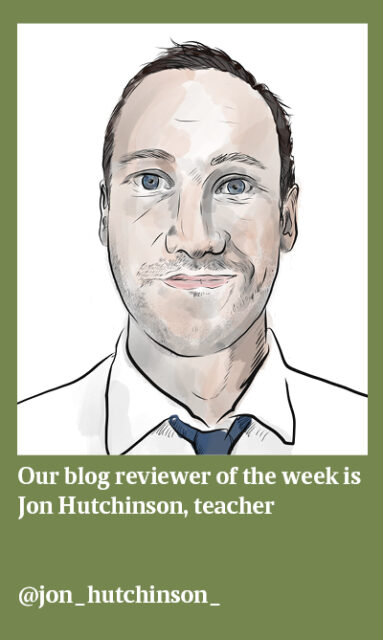 I read a lot of blogs on education. Generally speaking, they fall into one of two camps: the practical “here’s what I did in my classroom” type, and the more abstract kind that takes us back to first principles, challenges received wisdom, or presents a new vision for education. I love both, but I’ve tended to find those who excel at one rarely do so at the other.
I read a lot of blogs on education. Generally speaking, they fall into one of two camps: the practical “here’s what I did in my classroom” type, and the more abstract kind that takes us back to first principles, challenges received wisdom, or presents a new vision for education. I love both, but I’ve tended to find those who excel at one rarely do so at the other.
Christopher Such is a rare combination of both: he talks the walk and walks the talk. In this blog, my favourite of the year (and one of a series – even better!) Such provides a compelling case for a world-class curriculum in primary subjects and also exemplifies this vision with comprehensive and detailed curriculum materials, sharing them all for free. Truly, a scholar and a gentleman.
Gerry Robinson
The three little words no leader should be afraid to say
@DrHeery
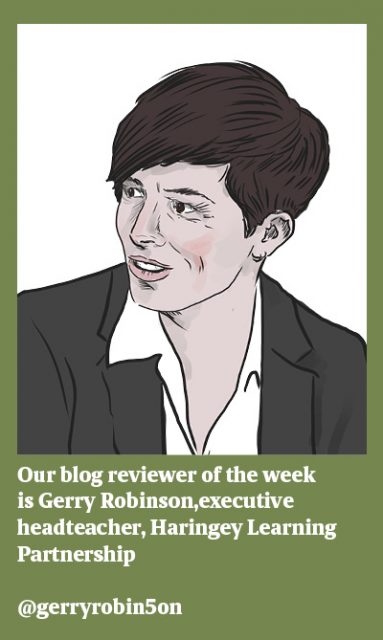 Since reviewing Heery’s Values in action – where rhetoric meets reality for Schools Week, I have spent more time reading Dr Heery’s blog. It has become a firm favourite, and among many great entries, this post has particularly stood out. In it, Heery challenges the image of a great leader as an omniscient being who is never fazed by whatever problems, however complex, are thrown their way.
Since reviewing Heery’s Values in action – where rhetoric meets reality for Schools Week, I have spent more time reading Dr Heery’s blog. It has become a firm favourite, and among many great entries, this post has particularly stood out. In it, Heery challenges the image of a great leader as an omniscient being who is never fazed by whatever problems, however complex, are thrown their way.
There is power, he argues, in three very simple, yet terrifying words: “I don’t know”. These may feel like a confession or admission of ineptitude, but that should not be the case. So long as they are followed up with a genuine desire to learn and seek the expertise of the team around you, then “I don’t know” is the first step to growing as an authentic, better-informed and more effective leader.
Melissa Jane
@1JamalKhan
 A year of upheaval has prompted many of us to consider what “going back to normal” might look like, and whether we want the old normal back at all. One important area of reflection has been the practice of permanent exclusion, which was cast in a new light by our collective experience of isolation in lockdown.
A year of upheaval has prompted many of us to consider what “going back to normal” might look like, and whether we want the old normal back at all. One important area of reflection has been the practice of permanent exclusion, which was cast in a new light by our collective experience of isolation in lockdown.
Arguments continue between teachers, but I have found students’ perspectives the most illuminating. This blog by Jamal Khan, who has experienced permanent exclusion and incarceration, remains so powerful to read. There is a great deal for teachers to take away from it, not least the author’s impassioned case for “the transformative power that writing brings”, as a tool for both personal healing and lasting social change.
Mary Hind-Portley
Difficult conversations are better conversations
@saysmiss
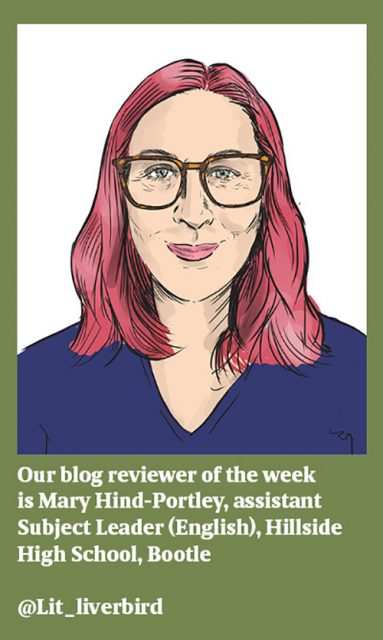 Of many helpful and constructive posts Kat Howard has written this year, this one has proved most insightful for me. Here, she explores the significance of conversation in schools, which is often taken for granted. She acknowledges that conversations can be challenging, and explains why we should spend time developing our skills for handling them.
Of many helpful and constructive posts Kat Howard has written this year, this one has proved most insightful for me. Here, she explores the significance of conversation in schools, which is often taken for granted. She acknowledges that conversations can be challenging, and explains why we should spend time developing our skills for handling them.
In schools, she says, “our most personal or professionally valued conversations are rushed episodes… a far cry from the open-plan office and the sometimes daily catch-ups of the corporate world”. But they are crucial to developing a strong and supportive school culture with honesty at its core. “‘It’s not simply more efficient to work better with others: it makes us want to come to work every day.” Hear, hear, Miss Howard!












Your thoughts